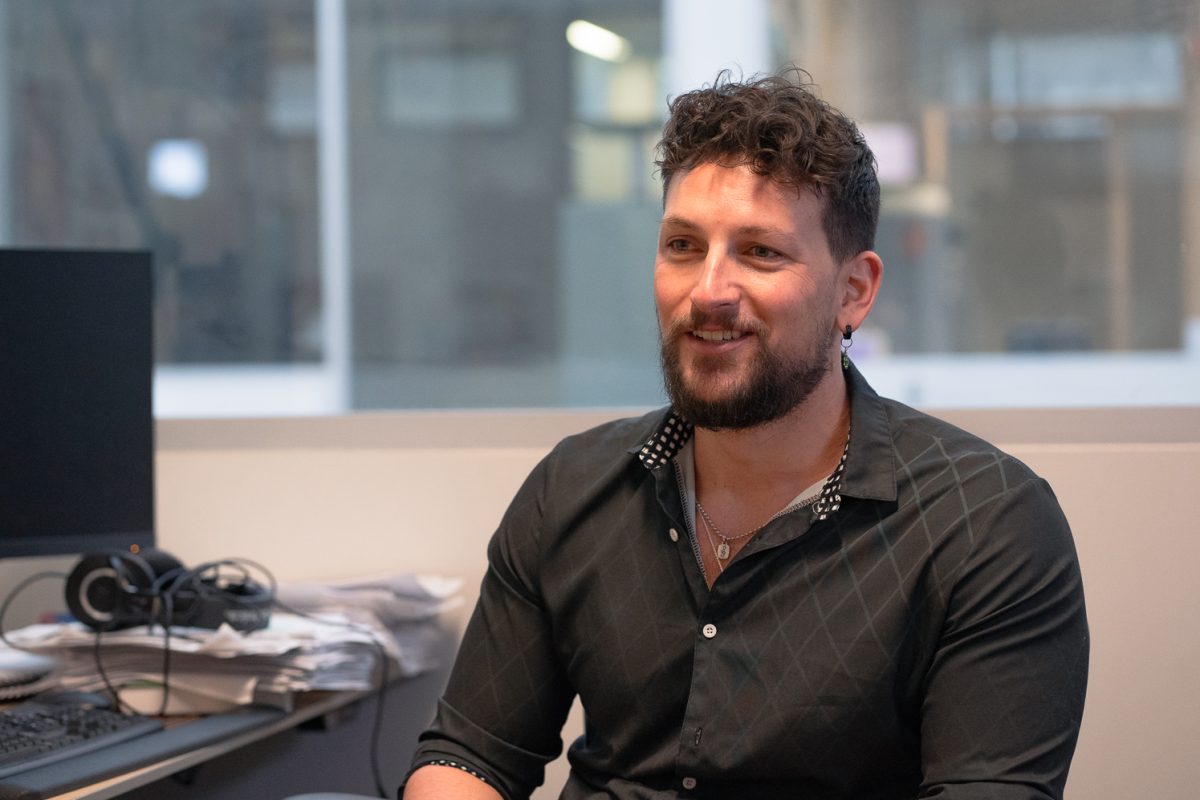Turns out a Rocky Mountain high might be just what the doctor ordered.
Ketamine-assisted therapy has surged in popularity since the Food and Drug Administration’s 2019 approval of esketamine, which is derived from ketamine, with providers across Colorado, including in Fort Collins, embracing its fast-acting antidepressant effects.
Sean Lawlor, a licensed professional counselor candidate in Fort Collins who practices ketamine-assisted therapy, explained the process in three steps.
First, a medical evaluation is conducted to ensure the client is physically and psychologically cleared. Then, the medical provider writes a prescription for ketamine oral lozenges or troches. Finally, the client brings this prescription to Lawlor for a three-hour dosing session.
“Typically, clients wear eye shades and headphones that play appropriate music from curated playlists,” Lawlor said. “In some cases, especially at lower doses, clients prefer to talk to me throughout the session, which allows for the opportunity of working directly with the content of their presenting concerns from the different perspective that ketamine provides.”
Ketamine allows for an altered brain state experience, which can help patients perceive, talk about and learn more about their mental health problems.
“(Ketamine) saved my life — saved the lives of people very close to me; Unfortunately, I know many people whose lives it didn’t get a chance to help.” -Adam Gremp, Clinic Director and Client Care Coordinator at NeuConnections Ketamine & Wellness Clinic
“(What) I’ve seen with clients is that it kind of opens different neural pathways,” said Mariah Milne, a licensed therapist in Fort Collins. “It can allow certain things to process, (and) it can allow for a certain reset of the nervous system.”
Ketamine has been widely used as an effective anesthetic in ambulances and emergency rooms worldwide and is generally considered safe.
“The resulting entropic brain state allows an individual to conceive of themselves in a different way outside the boundaries usually dictated by self-defeating narratives common to depression and anxiety,” Lawlor said.
People experiencing chronic depression, anxiety disorders or trauma have likely tried psychotherapy and medication together, sometimes seeing no changes in their symptoms. Ketamine is an especially hopeful alternative for these sorts of treatment-resistant mental health conditions.
“There is a (greater) likelihood that people will respond to ketamine if they don’t respond to traditional methods because it’s responding differently in the brain than on traditional antidepressants,” Milne said.
Milne’s advice for those who identify with this is to go for it, as the chances of harm are slim to none.
“I don’t know if I’ve really had many people have a negative experience,” Milne said. “Really, the only feedback we get in that area is that they just didn’t really feel like it made much of a difference.”
Adam Gremp, a military veteran who is now the clinic director and client care coordinator at NeuConnections Ketamine & Wellness Clinic, spoke on his personal experience with ketamine.
“(Ketamine) saved my life — saved the lives of people very close to me,” Gremp said. “Unfortunately, I know many people whose lives it didn’t get a chance to help.”
Gremp said the biggest impact of ketamine is what is learned during the experience and isn’t meant to be done forever.
“You’re really focused on, ‘How can I use every one of my tools that I have and all of my support systems to really go and effect change?'” Gremp said. “Then by the end of it, people’s scores — as far as their anxiety and depression — are typically much, much lower.”
Gremp said in the first couple of sessions, clients may feel agitated or dysregulated often because they are able to feel emotions they have not been able to for a very long time. These initial uncomfortable feelings are common and something prepared for beforehand by the client and provider.
Gremp offered one last piece of advice for those who may still be skeptical about psychedelic treatment.
“I feel that we need to open up the conversation and make it OK to talk about something we should not hide from, and sadly, psychedelics have been villainized for far too long when they’ve been incredible at saving — literally saving — people’s lives,” Gremp said.
For those still left with questions, Lawlor’s book, “Psychedelic Revival: Toward a New Paradigm of Healing,” is a great resource to learn more.
Editor’s Note: This article has been updated to reflect a correction in Sean Lawlor’s title.
Reach Caden Proulx at science@collegian.com or on Twitter @CSUCollegian.










